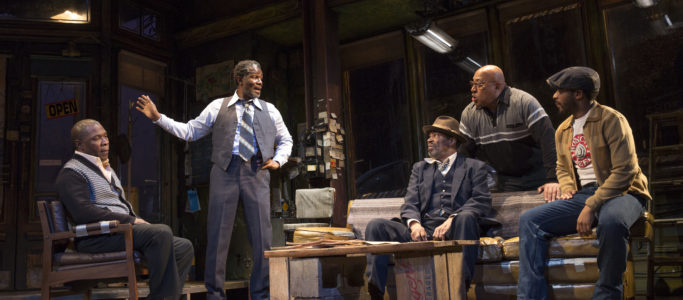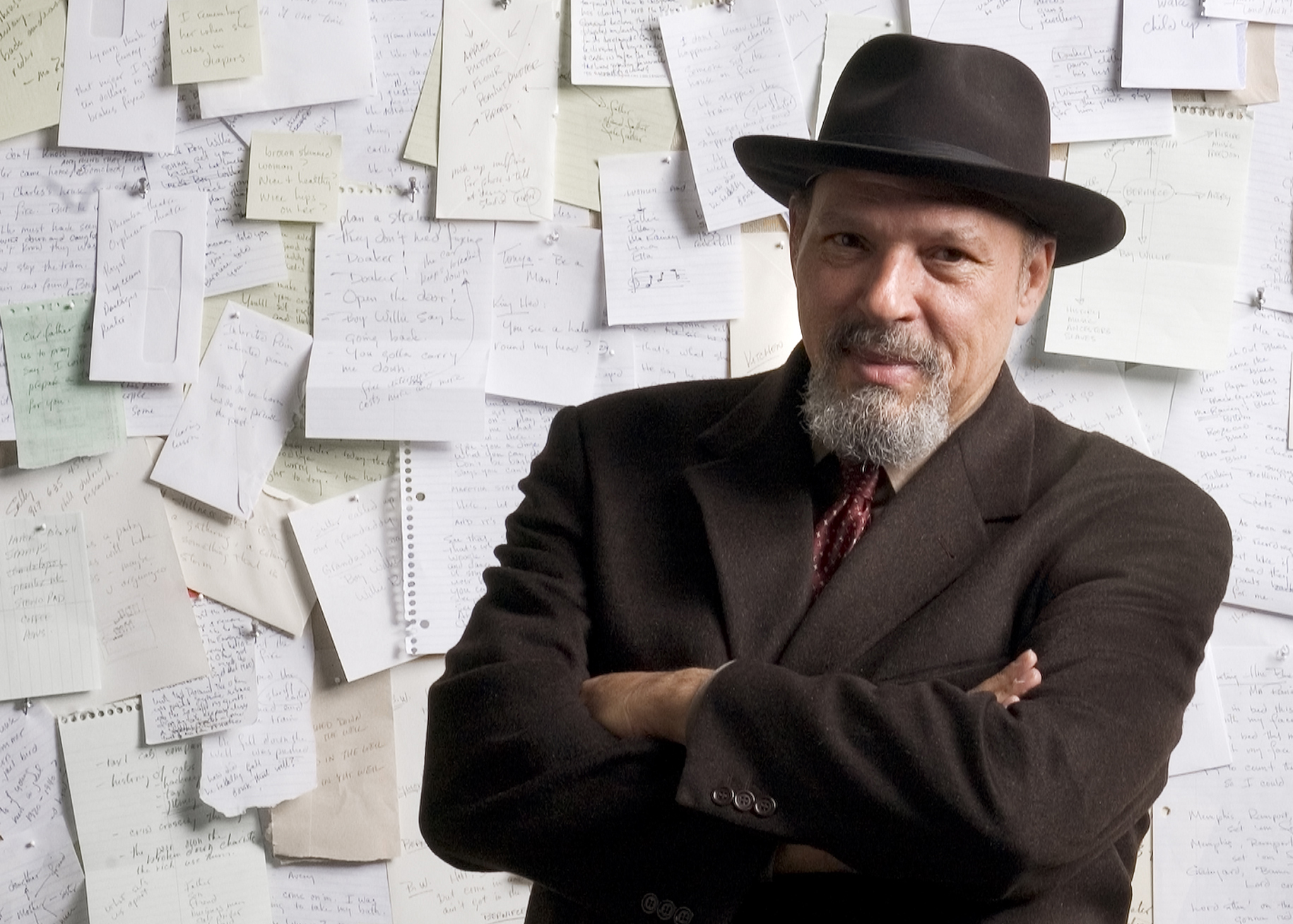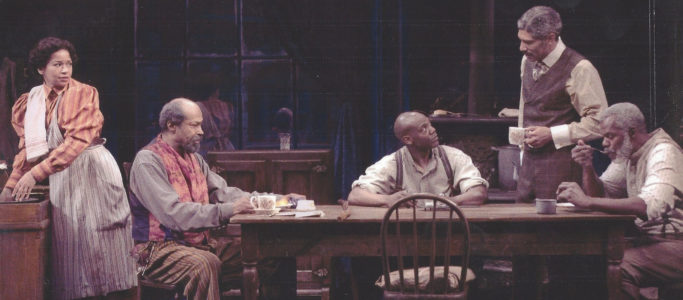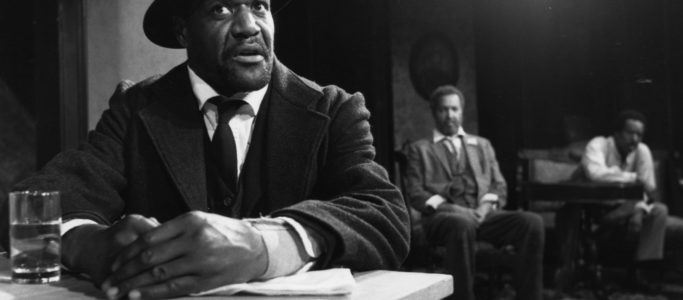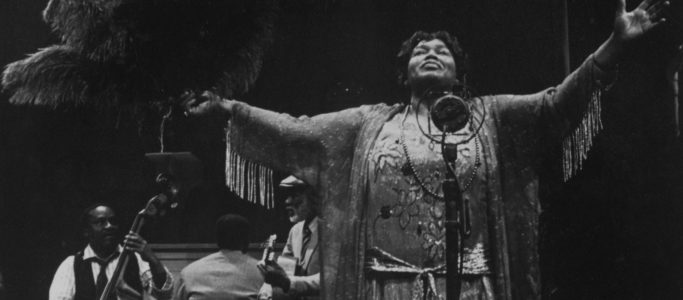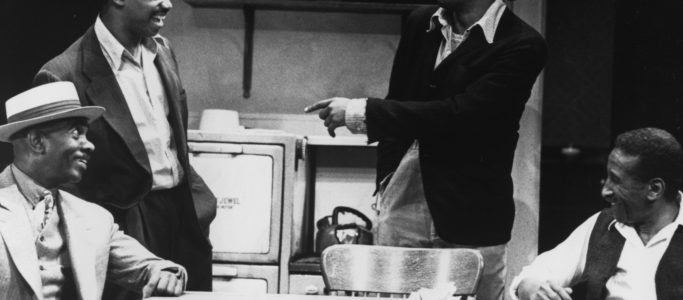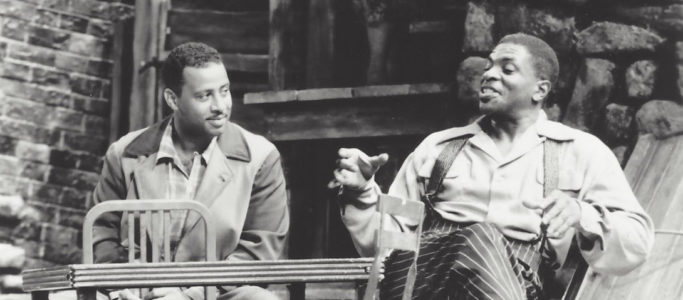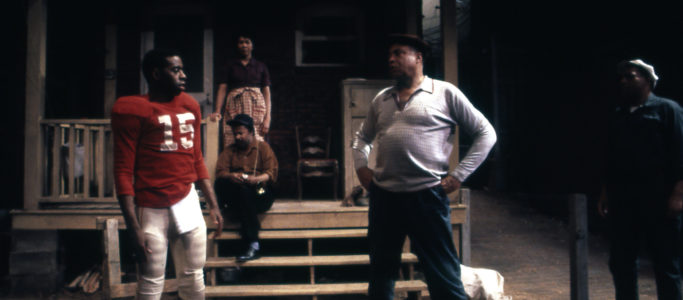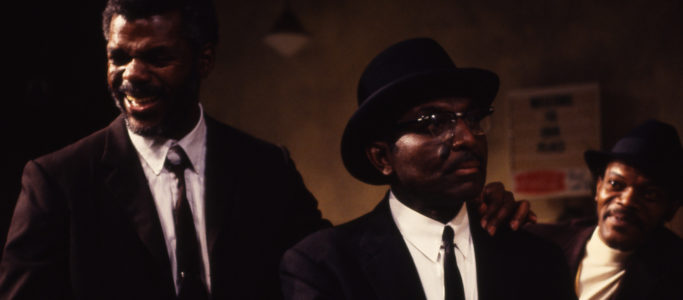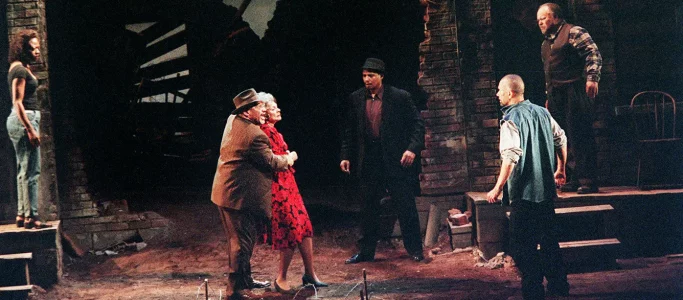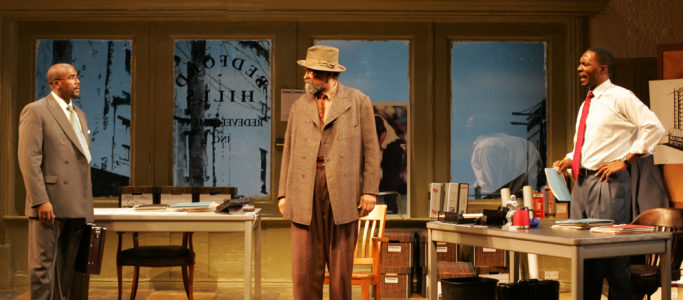Jitney
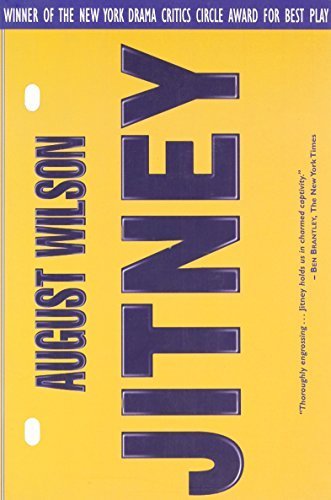
- Broadway Debut
-
January 19, 2017
Friedman Theater
- Performances
- 62
Set in a gypsy cab station in 1977, a group of taxi drivers face strained family relationships, romantic woes, violence and economic ills in their gentrifying neighborhood.
Jitneys are no accidental symbols in the play: much like the vehicles themselves, characters’ lives are transitory and in motion. Booster has served his time in prison and is recently released, while Youngblood is making arrangements to buy a house, and perhaps most telling: the city is in the process of shuttering the station’s doors in order to redevelop. The dialogue in Jitney relies on the rumor mill, making the conversations beautifully authentic, showcasing the intimate nature of the drivers’ relationships as well as the close-knit community in which they live and dream. Jitney delves into the recurring tension between the young and the old, the father and the son, and decades spent pondering the correct response to Black injustice.
In His Own Words
“That day when Mr. Rand came to the house it was snowing. You came out on the porch and he started shouting and cussing and threatening to put us out in the street where we belonged. I was waiting for you to tell him to shut up… to get off your porch. But you just looked at him and promised you would have the money next month. Mama came to the door and Mr. Rand kept shouting and cussing. I looked at Mama...she was trying to get me to go in the house... and I looked at you.. And you had got smaller. The longer he shouted the smaller you got. When we went back to the barbershop you didn’t seem so big no more. You was the same as everybody else. You was just another man in the barbershop. That’s when I told myself if I ever got big I wouldn’t let nothing make me small.”Booster, Act 1, Scene 4
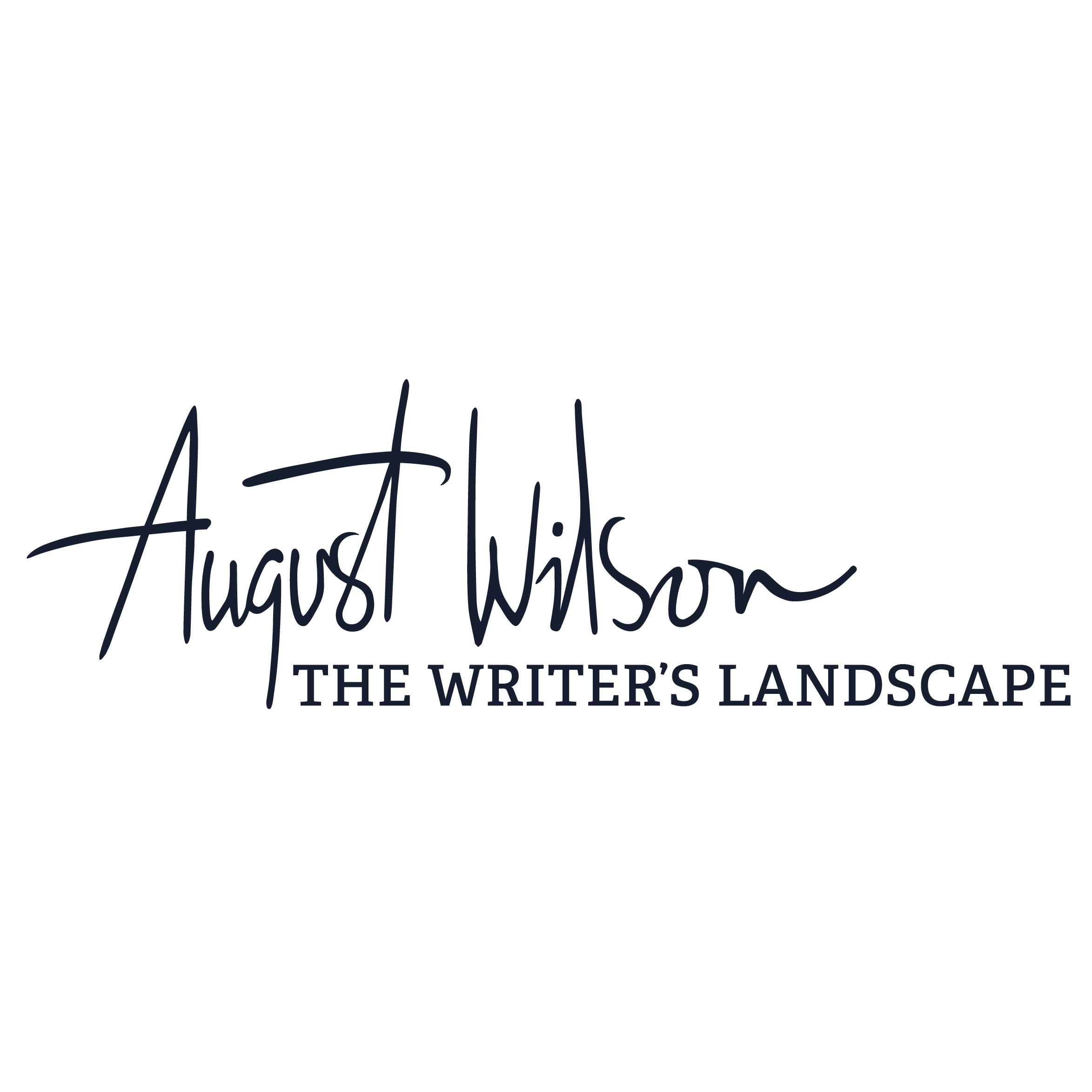
August Wilson:
A Writers Landscape
The August Wilson African American Cultural Center, one of the largest cultural organizations in the country focused exclusively on the African American experience and the arts of the African diaspora, will create The Writer’s Landscape, the first-ever exhibition dedicated to the life and works of Pulitzer Prize-winning playwright August Wilson. Opening in late 2020, the 1,800 square foot permanent exhibition will explore the people and places of Pittsburgh, where Wilson was born and raised, and which had a profound impact on shaping his worldview and inspiring his unprecedented 10-play American Century Cycle.
Explore Exhibit
